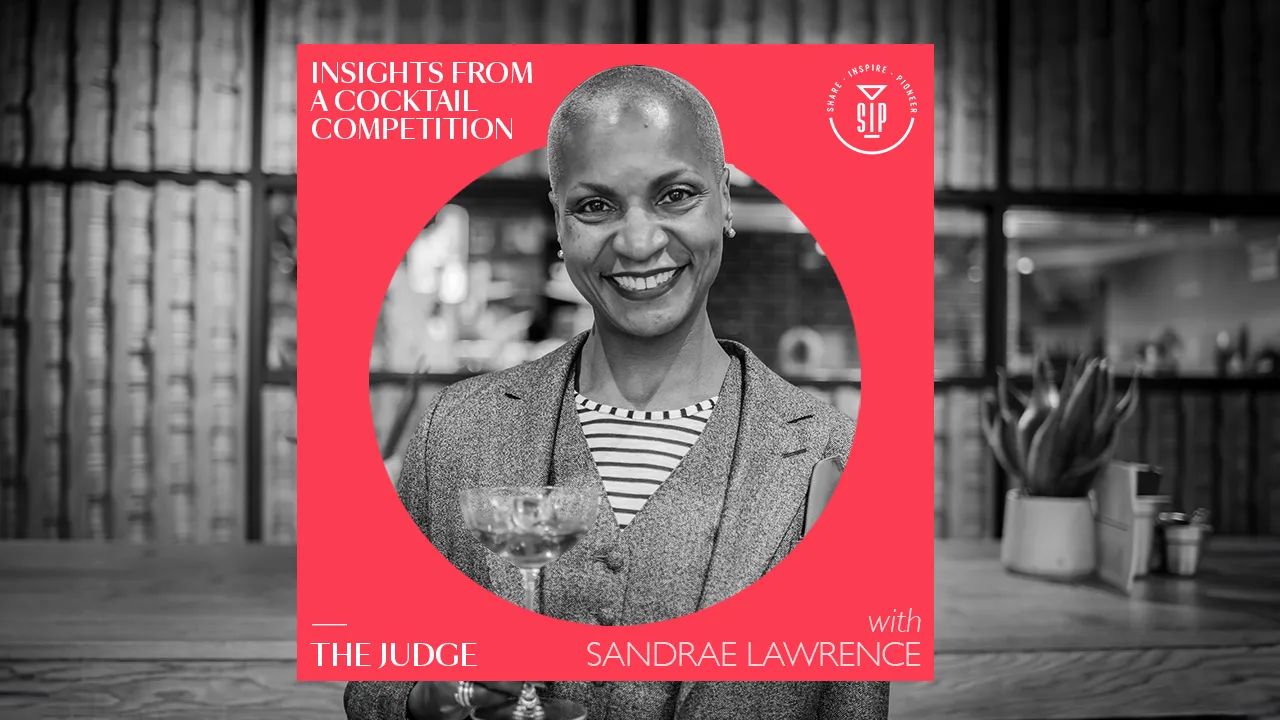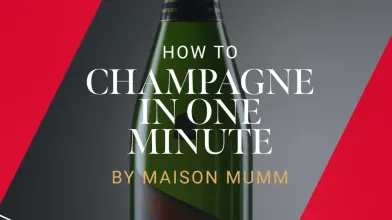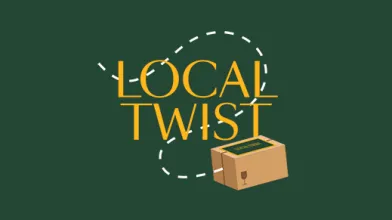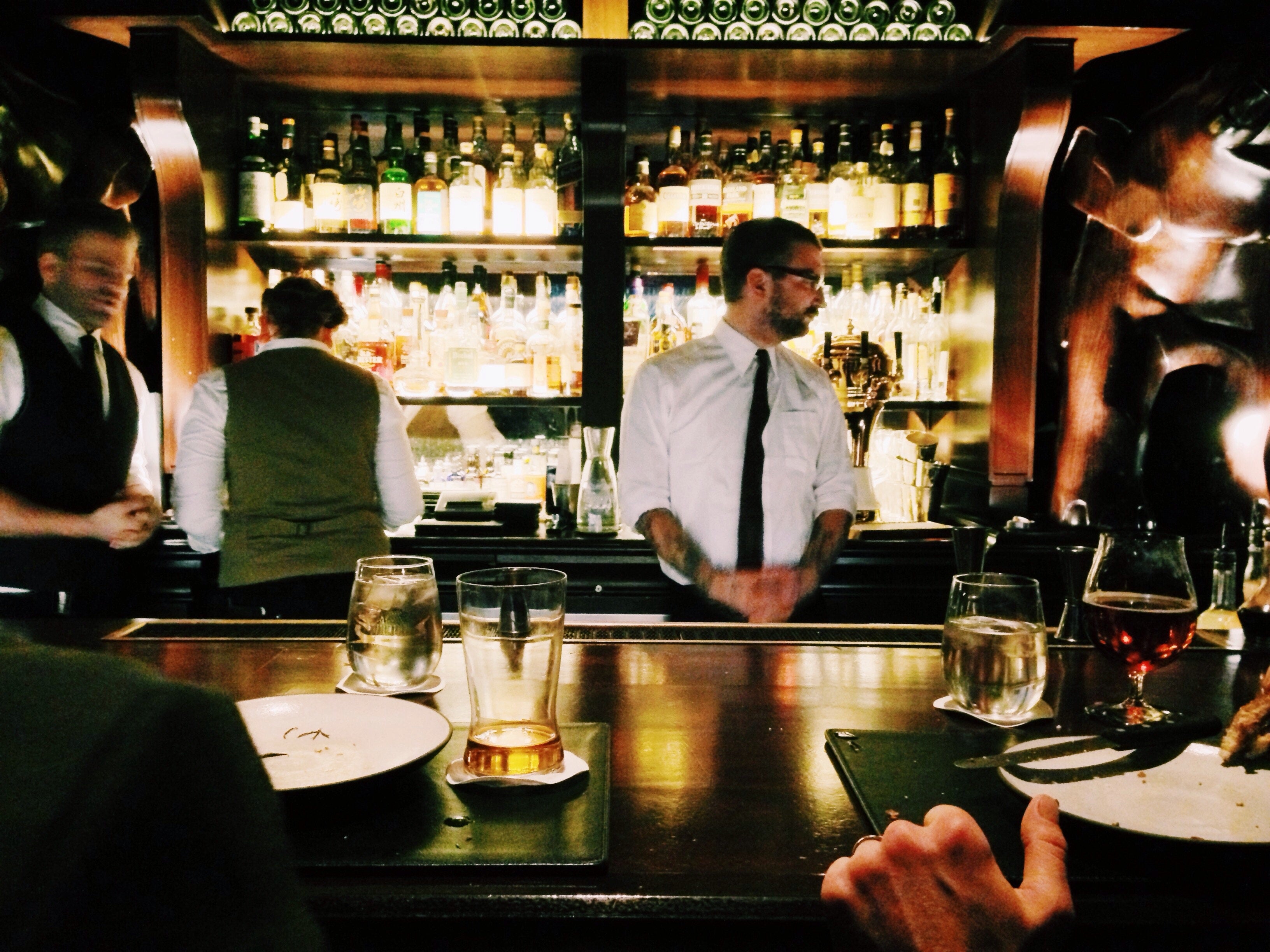SIP: Is it Sandr-ah or Sandr-ay.
Sandrae Lawrence: Sandr-ah. All good.
SIP: Okay, Sandr-ah, how do you become a cocktail judge?
Sandrae: That's interesting. I don't really know what qualifies you to become one. I guess it's because I am a cocktail lover. I suppose it's about having a different side of the cocktail experience. I never say that I'm an expert. I am a cocktail enthusiast, but at the same time I am very much somebody that visits bars, and I have a certain standard. We believe balanced cocktails should be so. I think people just started seeing us as people who were influential on the scene. So it was just about having a different voice.
SIP: Is being a cocktail judge as lavish and lovely as it sounds?
Sandrae Lawrence: No, not really. I mean people think it's a great thing to do. When you think about it particularly, when you're doing a global competition, you can be judging 20 cocktails in the day. And if all of them are going to be rum and lime, at some point your palate can get shot.
Also you want to give yourself to the competitor. You don't want to just be sitting there as a stony-faced judge. I want you to be your best you. That takes up a lot of mental energy as well. So yes, it's lovely and it's a very privileged thing, but each sip that you take does equate to drinking alcohol.
SIP: So is it better to be the first competitor or the 20th in that case?
Sandrae: Both have their equal merits. Most bartenders don't like being first and I understand why. For the first competitor it can be quite nerve-wracking. For the last one, even though you may have seen everybody else taking part, the judges have heard so many stories by that time and are actually starting to wind down a little. I guess being in the middle is great.
But really, it's about your energy, what you bring to the room. If you're starting first, if you're starting tenth, if you come on with confidence, and there's something about your personality in the way you can engage, it's about bringing the judges with you. Actually, there's no good position or bad position, it's all about you and the energy you bring to your presentation.
SIP: If you make a mistake, can you recover?
Sandrae: Yeah! People do and they can. Something I always say to competitors at the start is: Don't worry if your hands are shaking because that happens, and don't worry if you mess up, because that happens, but it's about how you come back from that.
It's always great when people make a joke about what they're doing, because it really helps to relax you as a competitor, but it also relaxes you as a judge, because you want to have these light moments. Even if you've made a mistake, and it happens a lot, you can have lightness and shine to it. And we love that.
SIP: If you don't win a competition, what is the value in taking part?
Sandrae: Sometimes winning is not the win. Most people I've seen go on to do good things have not won cocktail competitions. They become brand ambassadors. They use the platforms to meet investors to open their bars. They're quite savvy, you can use it for your own media in a way.
SIP: What would be your advice to any competitor?
Sandrae: Always ask your judges for feedback. Whether you lose or win, that's fine, but just ask for feedback. What did I do? What could I do a bit better? Why did I lose points on that? I mean, I'm not going to be savage and say, ‘actually you were crap’, but you're always going to find some positive things.
SIP: Did you see Cocktail Masters? How accurate is that?
Sandrae: It's made for television, so of course it's always going to be a bit more dramatic. It's aimed at an American audience as well. So there's an extra level of extra-ness. But you know, it showcased the level of cocktail competitions, I guess... It got cocktail competitions out there, and I suppose it showcased that there's a lot of creativity that goes into it. That's all I'm going to say on that (*laughs*)!








